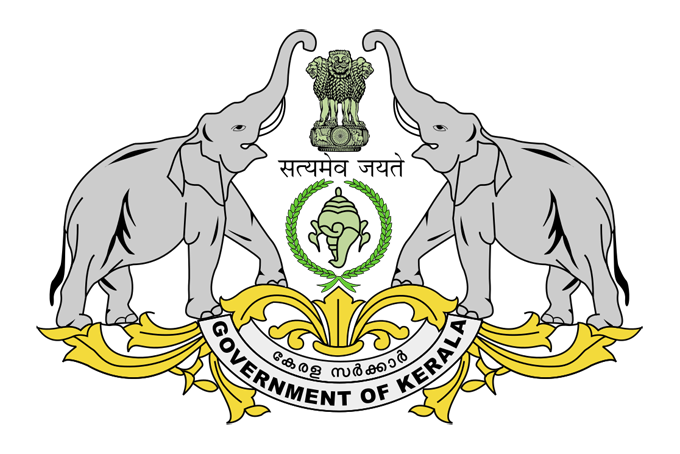
Over the past few months, Kerala has been in the middle of a controversy over its responsibility in the maintenance of the welfare of its expatriate population. The recent posting of IAS officer K Vasuki as Foreign Secretary of Kerala, a decision aimed at enhancing the states ability to engage foreign governments and deal with crises affecting the millions of Malayali expatriates in the Middle East and elsewhere has generated a multi-layered debate on the state’s autonomy, the Union government’s handling of crises and national politics.
The direct cause for this controversy was a fire mishap in Kuwait that took the lives of 45 Indians, 24 of them Malayalis. After this calamity, Kerala’s Health Minister, Veena George, wanted to go to Kuwait to monitor the relief operations and help in the repatriation of the bodies of the many Malayali expatriates who died. But the Union government did not allow her to travel and this led to a lot of anger in Kerala.
The Kerala government as well as the public criticized the Union government for denying permission to Veena George’s visit. The situation was further worsened by the negative remarks from BJP leader and former Minister of State for IT, Rajeev Chandrashekhar who dismissed the visit as “CPM’s Sight Seeing. ” Such remarks were considered as a disregard of the genuine sorrow and concern of the Malayali people.
In this context, the Union government’s actions or rather inaction was seen by many as a reflection of a general indifference towards the plight of Malayali expatriates. While the Prime Minister announced a compensation of ₹ 2 lakh to the deceased, the Kuwait government offered a compensation of ₹ 12. 5 lakh for each of the deceased Indian.
The following are some of the ways through which Kerala has been quite active in its approach towards its expatriates. For example, the Pravasi ID card given to the Malayali expatriates offers up to ₹ 4 lakh in accident insurance. The state government also declared ₹5 lakh more as compensation to the victims’ families which was also supported by local businessmen. On the other hand, the Union government’s response was relatively small, which leads to questions about the sufficiency of the central bureaucracy’s assistance. This discrepancy highlights a broader issue: The measures taken by Kerala to safeguard and nurture its Non-resident Keralites appear to be more enthusiastic than the Union government’s attitude towards these people despite their remittance and contribution to the national exchequer.
The feeling of bias against Kerala was further strengthened by the recent budgetary allocations. Kerala got only ₹ 21 for each ₹ 100 that was collected in tax revenue in the Union Budget while Uttar Pradesh got ₹ 46. This inequality has been a major problem in the country where states that contribute immensely to the national economy receive little or no returns of their contributions.
The central government has rejected the Kerala’s demand of ₹24,000 crore for the Vizhinjam international seaport project which is vital for the state’s growth. This decision is quite paradoxical to the large sums of money provided to other states like Bihar which was given ₹58,900 crore even though it is a BIMARU state and riddled with corruption.
The differential treatment of Kerala compared to other states like Bihar can be seen in political terms. Some people have claimed that the BJP has never cared for Kerala and the state’s requirements and the decreased budgetary support to the state is a clear example of the party’s political and ideological prejudice. The political map of Kerala is dominated by the leftist parties which is quite opposite to the BJP’s ideology and policies may have an impact on the central government.
Such political rivalry is also evident in the distribution of funds and the Union government’s response to Kerala’s requisitions and requirements. The conditions set on the financial front for Kerala and the poor compensation paid for the Kuwait fire victims only add to the view that the state is being punished for its political affiliations and assertiveness.
The situation in Kerala can be seen as a part of a larger problem in Indian federalism where states that are relatively more developed and have specific requirements often clash with the center. The Kerala Foreign Secretary controversy is not just about the administrative placements or remunerations but also about the fairness of the states in the Union structure.
This has led to questions being asked on the fairness and efficiency of the central government in its handling of the states especially in the financial aspect and in handling of crises. It also brings out the need to have a more balanced approach to state welfare with the understanding that all the states have something to contribute as well as require assistance.
Kerala’s appointment of a Foreign Secretary and its subsequent handling of the Kuwait tragedy show that there are fundamental problems in the state and central government in India. The Union government’s attitude or rather the lack of it towards the needs of Malayali expatriates along with the financial inequalities that were seen in the recent budget only reflect a bleak picture of the central administration. The poor compensation or lack of adequate financial support to Kerala is a clear indication that the states in the union need to be reconsidered. While India progresses in its journey, it will be important for the country to rectify these imbalances and provide equal treatment to all the states to ensure that the unity and equitable growth of the nation is not compromised.



















Leave a Reply